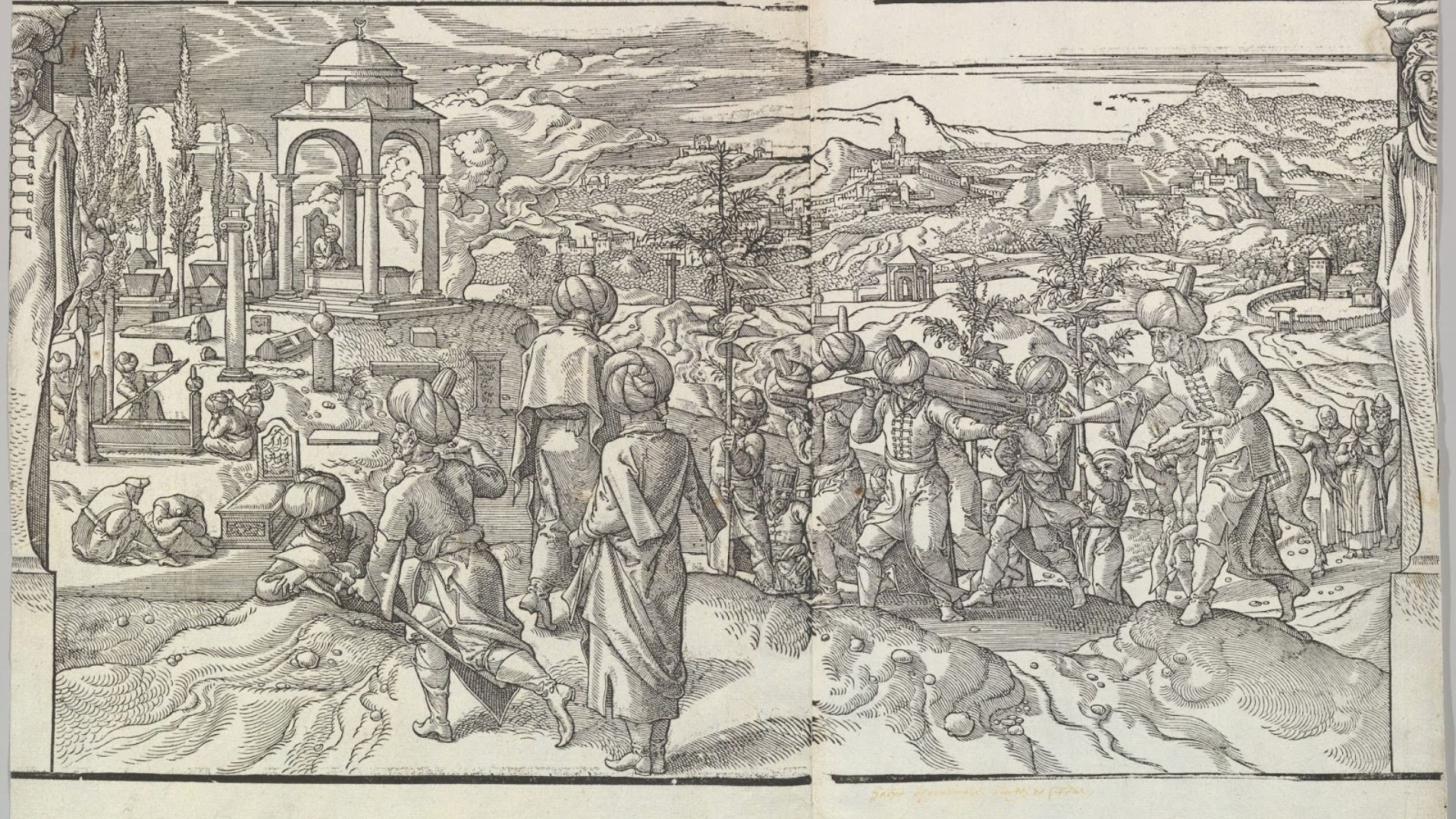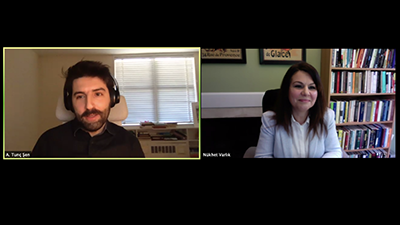Rethinking Past Plagues of the Ottoman Empire in the Time of Coronavirus

On May 13th, 2020, Columbia Global Centers | Istanbul and Columbia Global Centers | Tunis hosted a live webinar on "Rethinking Past Plagues in the Time of Coronavirus: The Ottoman Experience" with Nükhet Varlık, associate professor of history, Rutgers University–Newark and the University of South Carolina, in conversation with Tunç Şen, assistant professor of History, Columbia University.
Nukhet Varlık is the author of the award-winning book, Plague and Empire in the Early Modern Mediterranean World: The Ottoman Experience, 1347-1600, which examines the historical connections between the Black Death and subsequent plague outbreaks, and the growth of Ottoman power in the Mediterranean world. In the webinar, Prof. Varlık talked about the relation between Ottoman society and outbreaks of plagues from the mid-century until the Empire’s dissolution. There was, Varlık said, a plague outbreak once every decade in the Ottoman Empire, so people had learnt and were used to living with them. She pointed out that starting in the 16th century, the Ottoman state also started monitoring and managing the health of its population because of the frequent outbreaks.
She stressed that the response of people in the pre-modern world can only be understood by looking at their understanding of diseases. One of the main medical paradigms of the pre-modern world, that is not limited to the Ottoman case, was that diseases, especially epidemic diseases, were caused by bad air. Administrative regulation during a plague mostly focused on clean air and also clean water.

Prof. Varlık then talked about the perception of death by Ottoman individuals. She said that there are some literary sources that tell us about the emotions of individuals. She gave the example of a poem by Şeyyat Hamza, which talks about the agony of losing his children to the plague during the Black Death. The poem is extremely grim but at the same time, there is a sense of acceptance instead of resistance.
Prof. Varlık also talked about her personal experience, how it was interesting for her as a plague historian to be witnessing a global pandemic in real-time. She said that a commonality between the pandemic today and past plagues is the slow but invisible spread of the disease. As was the case in the past, we have not been able to properly track the spread even though we live in an era of technology today. In this way, it made her think about the disease as an entity and our knowledge about the disease, and the tension between the two.